UNICEF Strongly Urges Iran To Stop Killing Children In Protests
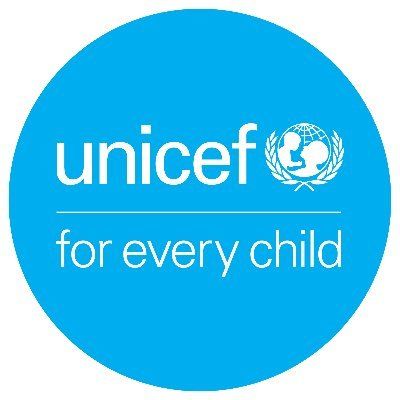
The United Nations Children's Fund has censured government violence against children in Iran, calling for an end to all forms of abuse directed at children.

The United Nations Children's Fund has censured government violence against children in Iran, calling for an end to all forms of abuse directed at children.
UNICEF in a statement on Sunday said it has received reports that the Iranian regime’s violence has claimed the lives of over 50 children and injured many more during the unrest in Iran.
"UNICEF also remains deeply concerned about continued raids and searches conducted in some schools. Schools must always be safe places for children,” underlined the international body.
It also said it directly communicated its concerns to the authorities in Iran since the first cases of child casualties occurred in response to the protests.
UNICEF went on to urge Iranian officials to respect the rights of all children to “peaceful assembly as a fundamental guarantee” - no matter who they are or where they are.
It called on security forces to refrain from using “unnecessary or disproportionate force”, underlining that kids and adolescents must be protected from all forms of “mental and physical harms”.
In recent weeks, UNICEF and its ambassadors had been widely criticized on social media for being silent about the suppression of children in Iran.
Earlier, the Iranian envoy to UNICEF, actress Mahtab Keramati, resigned to protest the lack of action.
Oslo-based Iran Human Rights Organization in its latest report said at least 51 children have been killed by security forces in the ongoing nationwide protests.
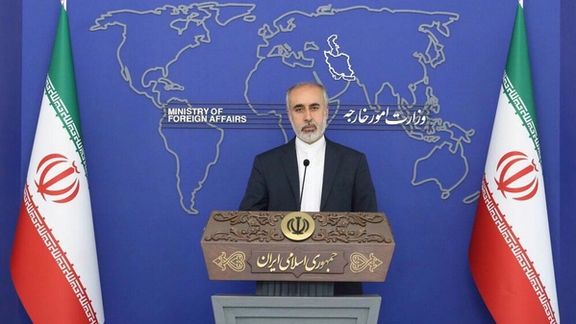
Iran’s foreign ministry has summoned Germany’s ambassador in Tehran for the third time in a month to protest “interventionist” remarks by German officials.
Tehran says the German envoy Hans-Udo Muzel was also summoned for Berlin’s key role in holding a UN Human Rights Council special session on Iran last week.
Iran’s foreign ministry spokesman Naser Kanaani said in this meeting, Tehran “strongly protested against the interventionist and baseless statements of the German authorities.”
“The German ambassador was also told that the recent resolution of the special meeting of the UN Human Rights Council is a wrong step based on a completely political and instrumental use of human rights and is fundamentally rejected. The Islamic Republic of Iran will not cooperate with any mechanism defined by it,” added Iran’s foreign ministry.
The ministry also noted that it has warned the German ambassador that Berlin and other European governments who support “the unilateral sanctions of the United States” are not “qualified to raise human rights claims”.
The UN Human Rights Council voted Thursday to launch an independent investigation into Iran's deadly repression of protests, that has killed more than 400 civilians.
The 35th special session of the Human Rights Council was held following an official request submitted on November 11 by Germany and Iceland, as well as the support by over 40 other states.
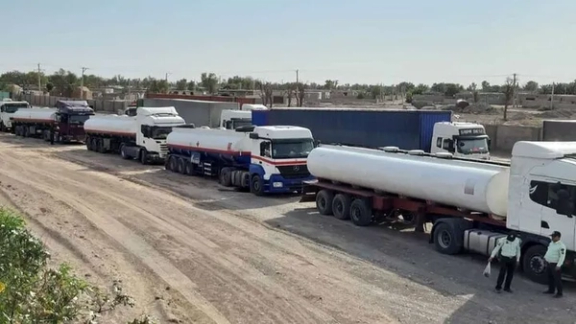
Antigovernment protests in Iran continued Sunday mainly through nationwide strikes by truckers and protest rallies at universities during the day and street rallies through the night.
Antigovernment protests in Iran continued Sunday mainly through nationwide strikes by truckers and protest rallies at universities during the day and street rallies through the night.
Truck drivers and owners in many cities across the country did not move their vehicles on Sunday in one of the biggest strikes taking place in more than two months since the current wave of protests began following the death in police custody of 22-year-old Mahsa Amini.
Truckers in several cities such as Esfahan, Bandar Abbas, Qazvin, and Kermanshah refrained from moving goods in support of the protests, sit-ins and strikes by industrial workers. Many people on social media describe the strike by the truckers as a significant blow to the Islamic Republic since it has the potential to cripple the economy. Some people say, “the truckers are leading the revolutionary uprising.”
The strike is so costly for the regime that it has already started giving the drivers extra fuel subsidies to lure them back into work.
In a video that became viral on Sunday, a driver is heard saying that if the government was able to give them subsidies before, why did they refuse to do so earlier in the year when they held another round of nationwide strikes.
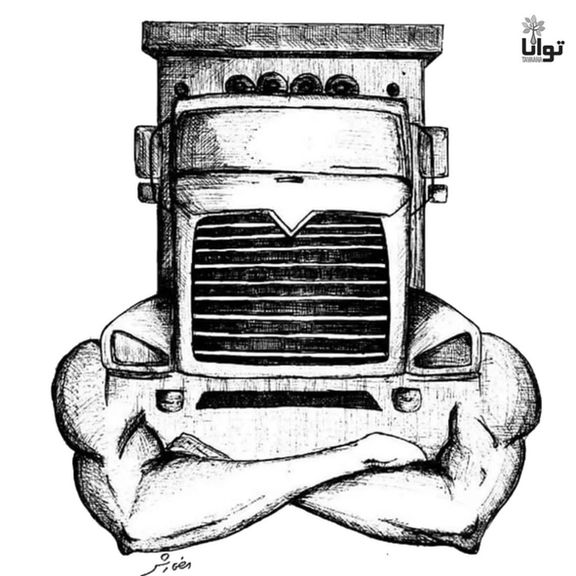
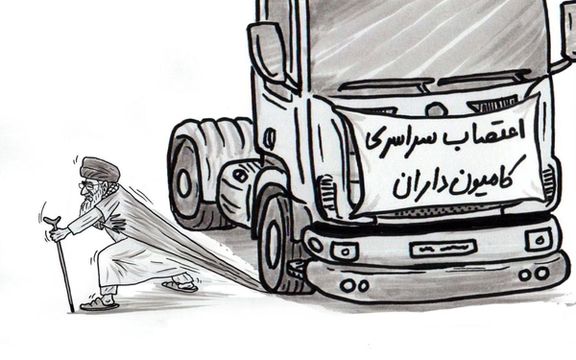
This round of strikes started Saturday after a call for a 10-day work stoppage by the Truck Drivers’ Union, while numerous workers at steel and automobile factories also stopped work on Saturday. Workers at Esfahan Steel Company, Alvand SarmaAfarin Incorporation, Morattab Car Manufacturing, Safe Khodro Car Manufacturing Company, Qazvin’s Pars Appliances Company, and some others joined many other factories already on strikes.
In recent weeks workers at dozens of industrial units, including automobile manufacturing, household appliances, heavy industries, petrochemicals, oil, gas, sugarcane, etc., went on strike. Shopkeepers and business owners in dozens of Iranian cities also closed their shops and went on strike many times for consecutive days in support of the uprising against the clerical regime.
The streets of many Iranian cities as well as the capital Tehran were also scenes of rallies after the sun set on Sunday, while calls for nationwide protests has been issued by different groups for the coming week.
People in several neighborhoods of Tehran held rallies and set trash cans on fire while chanting slogans against the regime’s crackdown on protesters.
According to the US-based Human Rights Activists News Agency (HRANA), from September 16 until Friday, November 25, at least 448 protestors have been killed, of which 63 were minors. While the Islamic Republic has not provided accurate figures of those detained in the protests, the watchdog went on to say that at least 18,170 protesters have been arrested including 565 students.HRANA added that 156 cities and more than 140 universities across Iran have also been the scenes of anti-government protests.
However, the Islamic Republic has also released several people detained during protests or in support of the protesters. Among the prominent dissident figures who have been freed on bail are human rights activist and journalist Hossein Ronaghi and actress Hengameh Ghaziani. Ronaghi, who was transferred to hospital directly from Evin prison, had been on a hunger strike that lasted over 60 days.
Many people call their release a new propaganda trick by the Islamic Republic to divert attention from the bloody crackdown in Kurdish and Baloch cities while some believe the new moves are the consequence of the international measures against the Islamic Republic. The United Nations Human Rights Council on Thursday adopted a resolution based on which an international panel will be formed to investigate the violence against protesters in Iran.
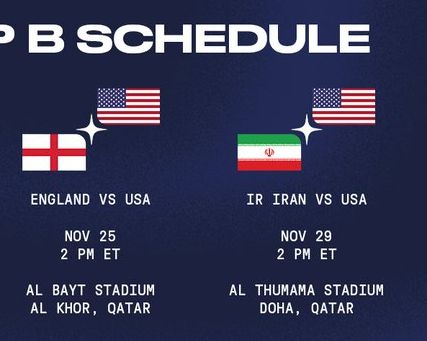
Tensions rise between Washington and Tehran before their national teams face each other in 2022 World Cup as US soccer federation temporarily showed Iranian flag on social media without emblem of the Islamic Republic.
“We wanted to show our support for the women in Iran with our graphic for 24 hours,” the federation says.
The move came as nationwide protests challenging Islamic Republic’s clerical rulers continue in Iran.
Iran's regime reacted by accusing the US of removing the name of God from their national flag, claiming the display violated FIFA’s ethics rules, which mandate a minimum 10-game suspension for racist behavior.
Iran’s IRGC-affiliated Tasnim news agency quoted Safiollah Faghanpour a legal adviser to the Iranian Football Federation, saying that FIFA will be asked to suspend the US men’s soccer team.
The symbol was later restored to the flag, but the hope of organizers to hold the World Cup far from the political moves once again failed.
The Islamic Republic emblem, designed in 1980, is four curves with a sword between them. It represents the Islamic motto: “There is no god but Allah.”
At the top and the bottom of the flag, there are 22 inscriptions of “God is Great” as well, which refers to the date on the Iranian calendar when the Islamic Revolution took place in 1979.
However, following the nationwide protests against the Iranian regime, pro-government supporters have waved it during the matches in the World Cup, but others have waved Iran’s historic flag which bears a lion and sun.
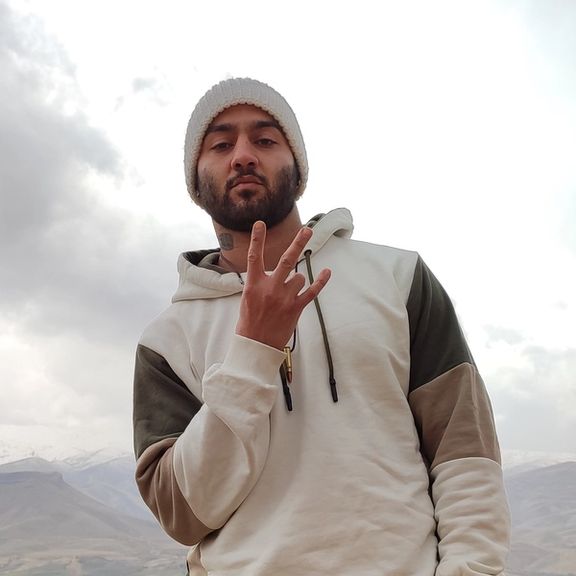
Chief Justice of Iran’s Esfahan province says dissident popular rap singer Toomaj Salehi has been accused of “corruption on earth” which may carry the death penalty for him.
Asadollah Jafari on Sunday said Toomaj Salehi faces other charges, including “propaganda activity against the establishment, forming an illegal group with the intention of disrupting the security of the country, cooperating with hostile governments, and spreading lies and inciting others to commit violence.”
However, Jafari said no court has been held for the rap singer yet. Toomaj Salehi was detained in late October after criticizing the Islamic Republic and expressing solidarity with the protest movement after the death of Mahsa Amini in police custody.
This comes as sixteen UN-appointed independent human rights experts urged the Iranian government to stop using the death penalty as a tool to punish protesters.
A US-based human rights group said on Saturday that Toomaj Salehi's trial had begun “without an attorney of his choice,” and his family said his “life is in danger.”
Earlier this month, 126 musicians, poets, artists, and activists called for his release.
Salehi’s arrest came shortly after his interview with the Canadian Broadcasting Corporation, saying that “You are dealing with a mafia that is ready to kill the entire nation... in order to keep its power, money and weapons.”
In his politically charged songs such as “Buy a Rat Hole”(2021), Toomaj, a 32-year-old metalworker in Esfahan, spoke out against repression, injustice, poverty, and authorities’ own corruption and impunity from prosecution.
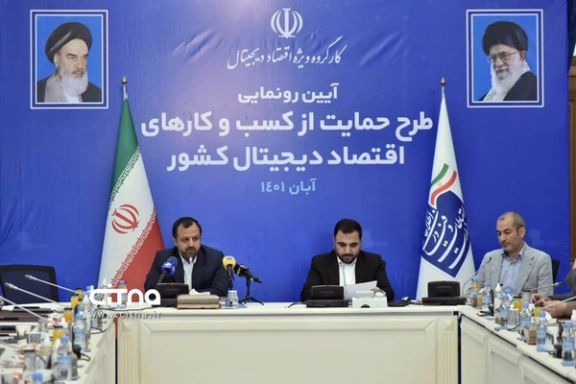
Amid internet shutdown to prevent spread of information about the ongoing protests, the Islamic Republic plans to provide high-speed internet to "accredited” digital businesses.
The frequent government shutdown of internet access has caused serious disruption for individuals and small businesses based on digital sales and marketing.
The new measure, dubbed “Regulations to support freelancers active in the country's digital economy," was ratified by the government’s digital economy taskforce on Saturday in 10 articles, which probably will lead to strict monitoring of online activities and ensuring that regime supporters have internet access.
The use of the term ‘freelancer’ might be misleading. The definition in the regulation points to individuals or companies that apply as active in digital economy and approved by the government.
Headed by Communications and Information Technology Minister Issa Zarepour, the taskforce was established last year to coordinate the government’s supervision on online activities among four ministries.
It defines a freelancer and its range of services, includes instruction on how to create a database of digital ‘freelancers’, sets criteria on their accreditation and how government institutions should interact with them, as well as some insurance and financial matters.
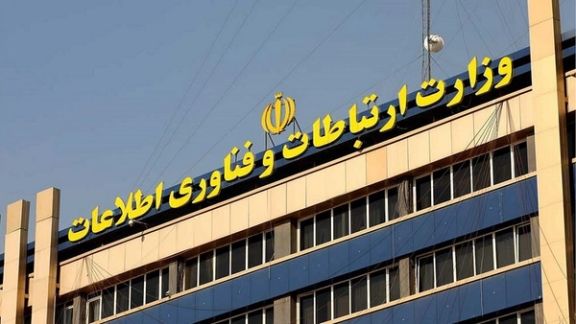
According to the new regulations, the computer trade union has been tasked to set up a database of ‘freelancers’ and their activities within three months.
In its article 8, the Ministry of Information and Communications Technology has been tasked with providing the necessary infrastructure for “high-speed and stable Internet with appropriate level of access for accredited people," without clarifying on the “appropriate access” or who are the “accredited people.”
In another article, the government claims that in order to supervise the “fairness and transparency” of the contracts between freelancers and employers, instructions have been issued for monitoring software platforms. According to the document, the regulations for accreditation into the database will be announced by the ministry upon collaboration among Ministry of Information and Communications Technology, the country's computer trade union organization; Ministry of Cooperatives, Labour, and Social Welfare; Ministry of Culture and Islamic Guidance; the presidential office of Science and Technology and Knowledge-Based Economy; and last but definitely not least the Intelligence Ministry.
Many Islamic Republic officials, such as member of the parliament Javad Hassanikia and former Information Minister Mohammad-Javad Azari Jahromi, have talked about providing internet access to university professors or journalists. The move can be a measure to justify replacing the country’s internet with an intranet for the general population who will be disconnected from the world wide web and controlled by the regime’s limited domestic access. Azari-Jahromi was one of the main supporters of the idea of stratifying Internet access inside the country. In an address to the parliament, he defended the idea saying it is not possible to provide the same type of internet to all jobs and ages in the country.
Like almost all measures by the Islamic Republic that sound innocent but pursue ulterior motives, the new move is titled “regulations to support freelancers” but is meant to suppress any critical voice and cajole those who want normal access to the internet to be on the regime’s side. It means that if you want to have access to the internet, the government should be able to monitor your work and make sure you do not engage in any activity or cooperate with anyone the regime deems hostile.